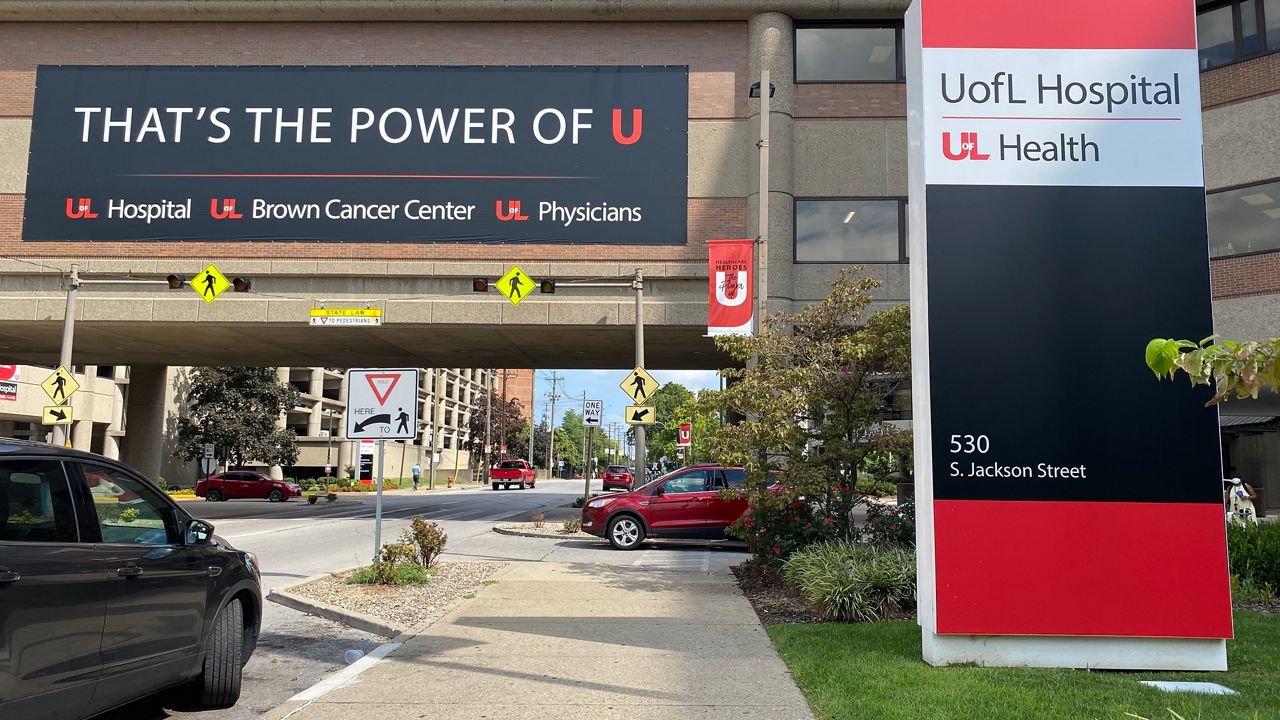LOUISVILLE, Ky. — Hospitals that require employees to receive the COVID-19 vaccine have not seen a significant number of worker departures, Kentucky Hospital Association president Nancy Galvagni told lawmakers Wednesday.
“In talking with our members, they report the overwhelming majority of staff are receiving the vaccine,” she said. “And there has been no operational impact from adding this requirement.”
Several local hospital systems separately confirmed the statement from Galvagni, refuting the claim that the current health care worker shortage is being driven by hospital-mandated vaccines.
Instead, Galvagni said, the shortages are driven by the growing number of older workers who are retiring and the lack of younger health care workers willing to replace them. “The staffing shortages are not new,” Galvagni said.
Making the problem worse, one doctor told Spectrum News 1 this week, is the stress level in Kentucky hospitals, which is driving some workers away from the industry. Currently, 64 of 96 Kentucky hospitals are reporting critical staffing shortages.
In recent months, around a dozen Kentucky hospitals and hospital systems have mandated that workers receive the COVID-19 vaccine.
Norton Healthcare President and CEO Russell Cox said last month that the summer’s COVID surge led to the decision. “We must ensure we are doing all we can to keep our employees, providers, patients and our community safe," he said.
Norton’s policy called for employees to receive their first dose of vaccine by Sept. 15. One week later, “over 99% of Norton Healthcare employees are compliant with our COVID-19 vaccine requirement,” spokeswoman Maggie Roetker said.
She did not provide the number of workers who remain unvaccinated but said they will have until the first day of October to change that. “Employees who comply with the vaccine requirement before Oct. 1 may continue to be employed,” Roetker said.
When UofL Health announced its employee vaccine mandate on June 1, roughly 70% of its employees were vaccinated. The hospital set a Sept. 1 deadline for all “team members, and providers, including residents, fellows and rotating students” to be fully vaccinated. Those who weren’t “may be subject to disciplinary action,” the hospitals said at the time.
Reached this week, spokesman David McArthur said each of the hospital’s 12,000-plus employees “is either fully vaccinated, has begun the regimen, or filed for a medical/religious exemption.”
All told, he said, “less than five team members chose to separate their employment from UofL Health due to the vaccine requirement. We respect their choice and extend appreciation for their service.”
A spokesperson for Baptist Health said the deadline for their employees to complete a vaccine series is Oct. 31, so it has no data on mandate-inspired departures.
Health care experts have said mandating vaccines for hospital workers ensures that patients are as safe from COVID-19 as possible. Contrary to the argument that mandates will cause employees to quit, they say requiring the COVID-19 vaccine will prevent worker shortages.
“If you have been vaccinated, and you get COVID, you will have lesser symptoms, probably not need to be hospitalized, and certainly not put on a ventilator,” Kentucky Nurses Association CEO Delanor Manson told Spectrum News 1 this month. “It’s critical to have nurses to take care of these COVID patients. If nurses themselves become ill, and they can’t take care of patients, what will happen to these patients?”
